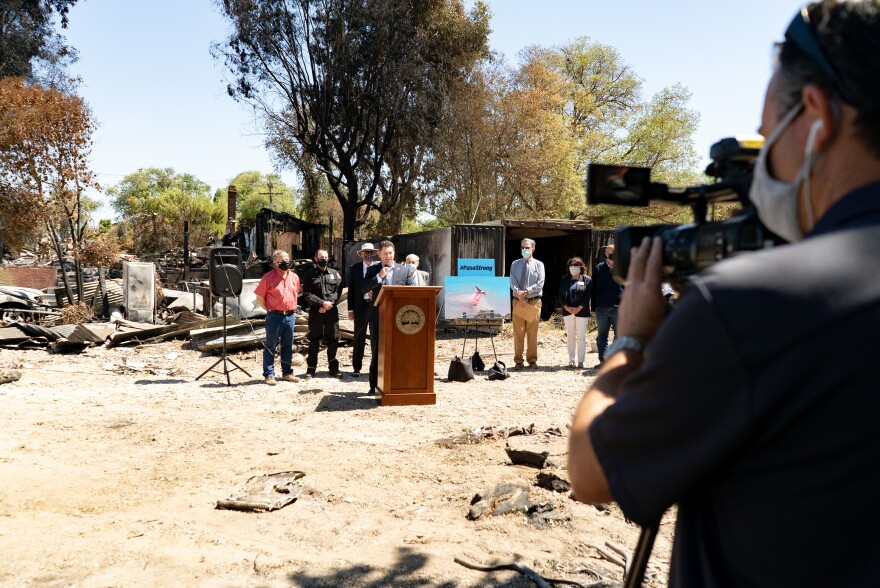A fire in Paso Robles on June 22 destroyed two homes, damaged nine others and forced a third of the city to evacuate. The nonfatal wildfire started in a small stretch of the Salinas River, in an area where city officials consider dry grasses and brush an ongoing fire danger.
Now, Paso Robles and the regional water board have agreed on an emergency plan to clear out the vegetation. This comes after Paso Robles Mayor Steve Martin and two other local politicians penned a letter to CalEPA demanding the water board let them use mechanized tools to cut back the overgrowth.

"Some parties were being very narrow-focused on their purpose," Martin said. "We are sensitive about the environment, we don't want to tear up biospheres, we don't want to do any of that -- but when it comes right down to it, it's more important that homes don't burn down and people aren't killed."
Paso Robles previously declared a local emergency after a summer 2019 fire, enabling city crews to go in and cut the vegetation without approval from the water board. However, Martin said the city was told not to do that again, and be sure to go through the proper channels the next time or face legal action.
The city’s new emergency plan allows for a team to cut back some denser areas of the riverbed with chainsaws and a masticator, essentially a heavy-duty wood chipper attached to an excavator. But does the plan encompass best management practices for the riparian environment?
"When you do that physical removal of vegetation, you unavoidably cause soil disruption which actually favors infestations of non-native species," said Tom Dudley, a researcher at UC Santa Barbara in the marine science unit.
Dudley is an expert on river ecology and the increasing fire risk of these systems. He said that the city shouldn't cause too much disturbance to the soil, as that could create a good seed bed for more of the dry weeds to grow back.
"So by removing some of that vegetation, you're actually it making it a worse situation for weedy species to come in and the weedy species are the biggest ones in terms of fire risk," Dudley said.
The Central Coast Regional Water Board says a contractor with river ecology expertise will be on hand to ensure that impacts are minimized. And whatever impacts there are, Central Coast Water Board executive director Matt Keeling says the city will need to document those.
"If they can't mitigate them to the maximum possible extent while they're in there, those impacts will need to be addressed as part of the ongoing implementation of the long-term plan," Keeling said.
That long term management plan aims to not only prevent wildfires, but make fires that do break out more manageable. Paso Robles’ mayor said that plan should be ready soon.




